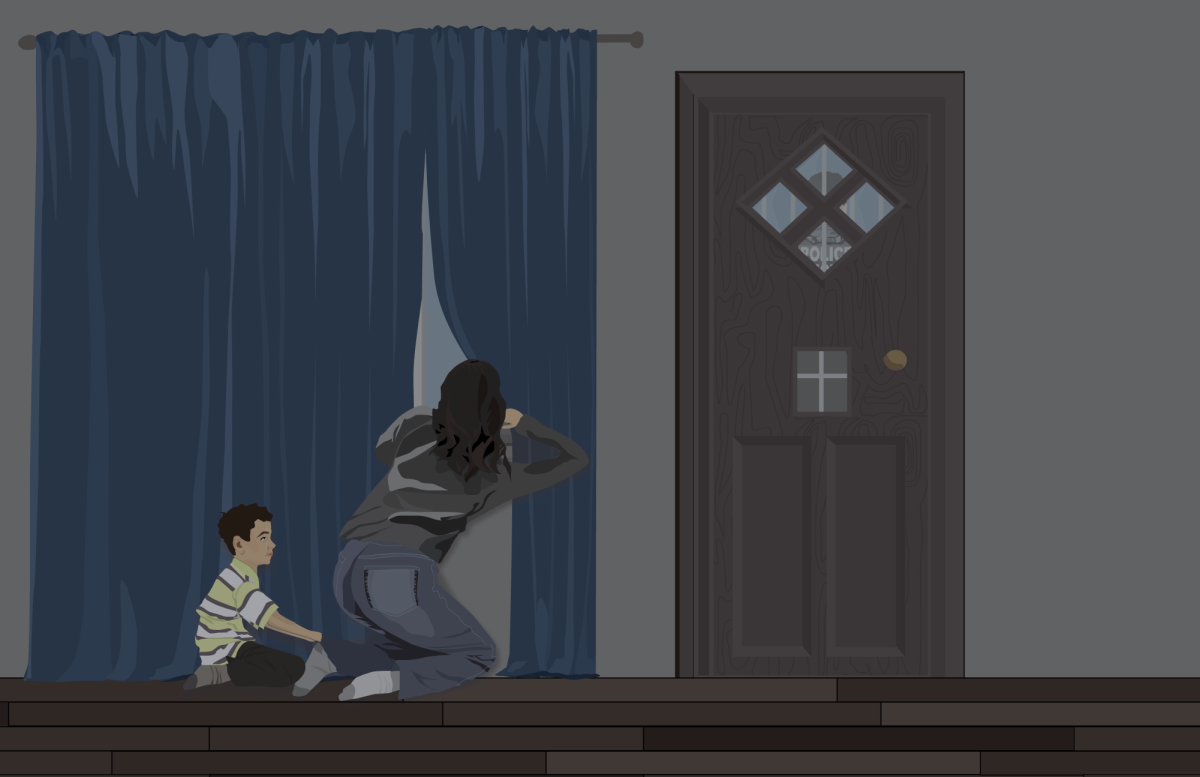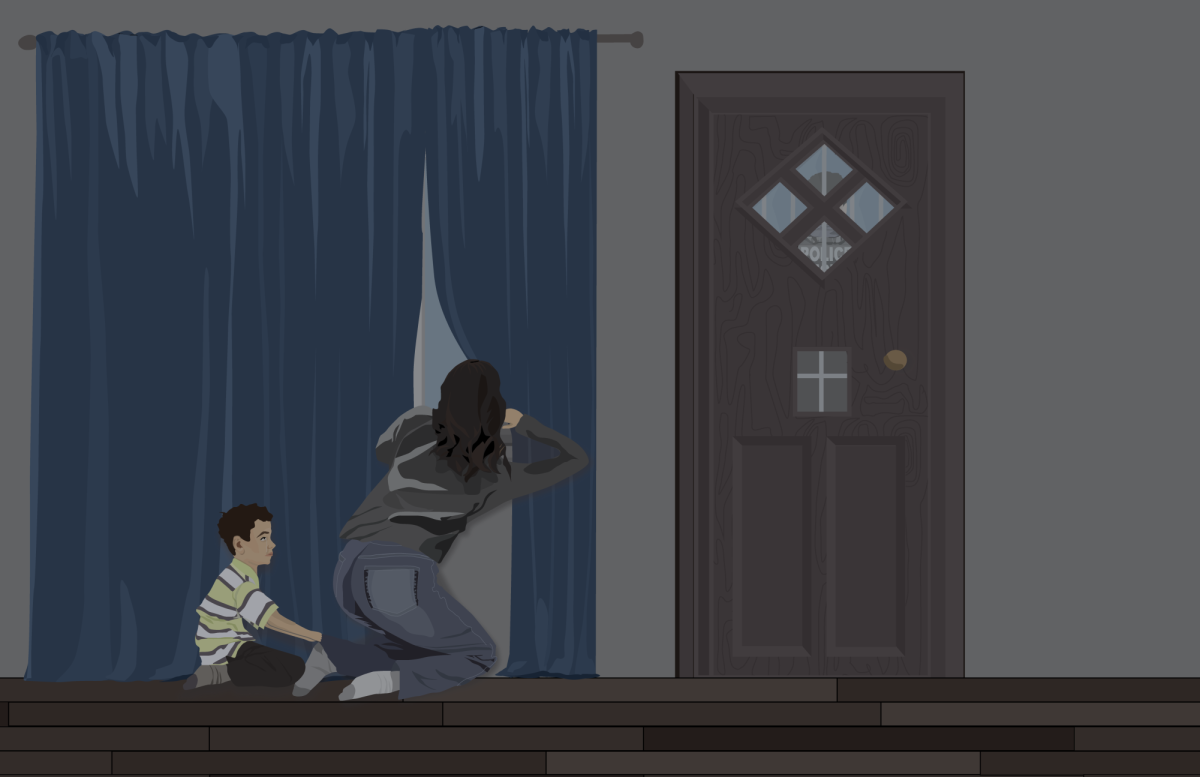Drew Lane is the new Executive Director of Information Service. It is a new position created for the new technology implemented in the school district. The questions students want to ask is how much privacy do we have? Here are Lane’s answers.
Q: How does CIPA influence what is filtered on a student’s laptop?
A: Sure, Children’s Internet Protection Act, we actually have to adhere to two of those. There’s a federal one, and there’s one that was passed a year or two ago in the state of Kansas. The federal one we adhere to because the district receives funds from the UA program, and for any school district that wants to receive funds from the UA program they have to be strictly applied. The state of Kansas does not make that distinction. Whether or not you are receiving funds, the state of Kansas CIPA law says that you will content filter. The federal version and state version are different in how much they light out what you have to content filter. So really what it boils down to is material that is deemed objectionable or profane, pornography falls into that category of course, duh, hate speech and slurs can fall into that category. We use categories, our vendor uses a system of categories, and they categorize things, and we either open or block certain sites. For instance, we have a category dealing with hate speech. If a site is categorized as hate speech and falls under that category, it will be blocked on the district devices.
Q: Are there random checks of student laptops?
A: Usually, no. Our checks are usually prompted by an activity of some kind. We have system in place that monitors for things like inappropriate behaviors and alert us to the fact that someone is doing something they shouldn’t be on a district computer. But we don’t do random check-ups.
Q: What would cause administration to go through a student’s laptop?
A: There would have to be a compelling reason, like inappropriate navigation or perhaps they used the device to make a threat. There would have to be some action or some activity on the part of the person who owns the laptop for it to be gone through.
Q: Who is in charge of monitoring the laptops?
A: The district has a full time security administrator, that person’s job is to conduct investigations and those types of things when we’re alerted to activity taking place that is abusing policy, or perhaps against the law, or, you know, if it were both of those things. But we do have somebody who is responsible for conducting those investigations. Overall monitoring on a daily basis, those types of thing, a lot of that stuff is automated, and so there’s a team of people in my department that are responsible for that.
Q: Wouldn’t students argue that it’s an invasion of privacy for someone to go through their laptop?
A: Sure, I think anybody with, that’s raised and grows in the states would be probably weary of, you know, can anybody at any time go through my laptop. So, I think the students could probably make an argument, I don’t think that argument would hold up because the district owns these devices and are in ownership of the devices, and they are basically loaned to students and teachers and anybody else. There are also laws in the books that provide districts latitude for those types of things. So, I think students, and I would certainly encourage students to research and understand their rights, understand their responsibilities as well. But Ultimately because they are district devices, they do have the authority to go through them.
Q: How would you describe your job?
A: The executive management position is responsible for all technology in the district. I manage the people who make the technology work, keep the technology working, manage data servers, emails, all that stuff. So I manage everything that goes into that kind of work. Day to day it’s pretty routine. Some days when there are on-going issues it can be exciting, but thats the situation. I just manage the people who keep the technology working.
Q: How much privacy does a student have?
A: The student privacy is outlined in the acceptable use policy. It is very similar to what faculty and staff can expect. These are district owned devices and they remain as district property. The other thing is they’re intended to be used for academic purposes. That being said since they are district property, the district does have the ability to look into the computers at essentially anytime. Technically speaking now from practical or logical or in terms of just regular practice when would the district would look into those. Generally speaking there has to be a reason for us to be looking into that. I don’t have people stationed to make sure that policies are being followed, nor would I want to. That doesn’t do much for trust in general. Privacy wise students, teachers, staff, everybody should not anticipate in having the same levels of privacy as with their own personal device. That is certainly not the case. But we don’t go monitor every day thousands and hundreds of devices.
Q: Can the district monitor students through the camera?
A: Is it technically possible? Certainly. I say that because with few reservations anything is technically possible. Would the school district engage in that kind of activity? Not at all, not under my watch. Unless there would be a couple of incidences that I would consider my folks to do. One would be if somebody’s device was stolen. We would use the camera to locate the device or locate the person who has stolen the device. We might use the camera to do that. Or if someone reported to us that the student might be in danger that there maybe a cause to think the student might be under distress or jeopardy of some kind we can use the camera in that case. Would we use it to just surveille them for general purposes? No, absolutely not.
Q: How come some sites are not blocked here, but are blocked at home? (ex. youtube)
A: Blocking or unblocking Youtube was a discussion at one time at the district level. It was a discussion they had before I got here, so I was not there to preview the discussion. The decision was made to control access to youtube. On the computers that you folks have the content filter it is same company but two different products. So when you are at school your content filtered on what we call our hardware proxies. When you are at home you are filtered using their cloud base solution. Blue Coat is the company that provides the solutions for us. There is probably a difference in how they are categorized in the cloud product and in the hardware proxy. If you are being content filtered differently in those places somebody should come and bring that to our attention to see if there is a miscategorization? Is it uniform across the board? Or is there a problem with the server we don’t know about? I guess the thing I am going to tell you is that the content filter technology, like any other technology, is prone to mistakes, miscategorizations, typos, all sorts of errors. When you run into problems like that I would encourage students to you know ask some questions and get feedback from teachers. If teachers don’t know, you know then ask my team. It could be that we don’t know that it is happening to you. It could be misconfiguration of some kind.
Q: How are the websites categorized?
A: We actually have to rely on a number of entities to help us sort things into appropriate categories. Search engines typically categorize their content, image searches are categorized by search engines and there are given categories. There could be educational or adult content. Provided for what we use for our content filter it takes those and translates categories of what we use so for instance, you might have educational sites. That would be a category. Any and every site that is categorized as educational falls in there. We don’t block educational category so those sites can go through. Sites that categorize as adult content we would obviously block those. Those sites would be put into that category and be blocked. The funny thing is that search engines can make mistakes and they can miscategorize something. If it is miscategorized in the search engine or somewhere else and it comes to our content filter and it doesn’t get categorized correctly. It is possible that a site that isn’t really something we want coming through be getting through. But the count of that is that it can happen in legitimate sites that get categorized and it gets blocked and it shouldn’t be blocked. There are a lot of moving parts.









